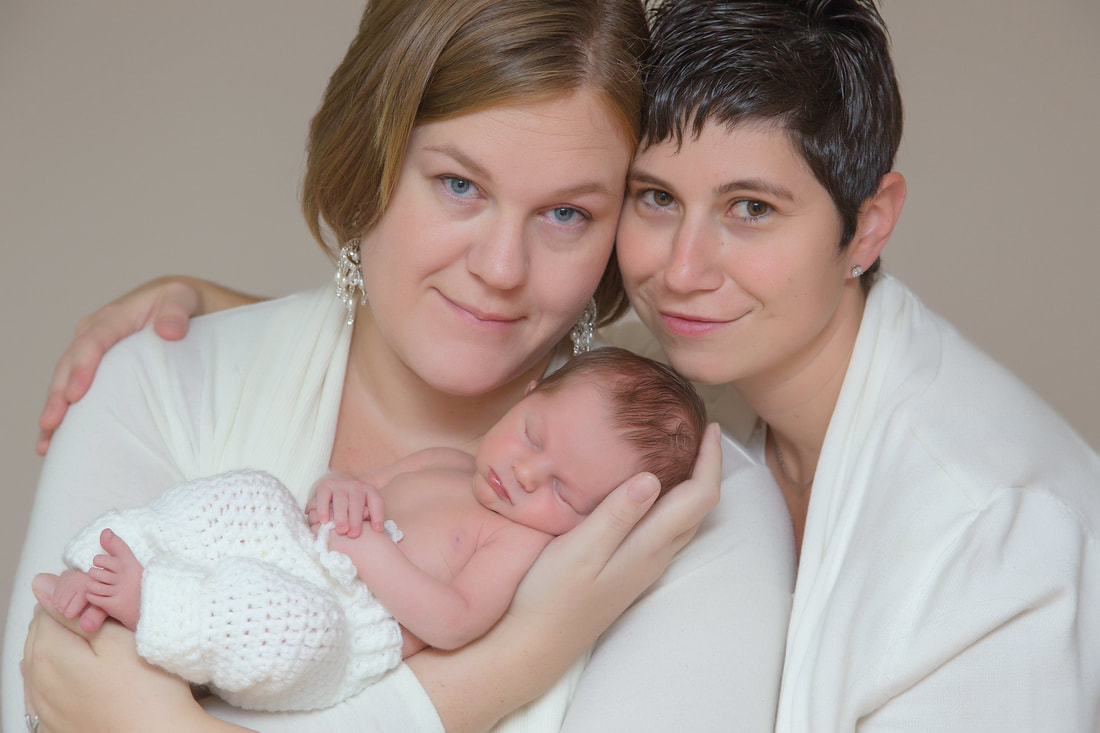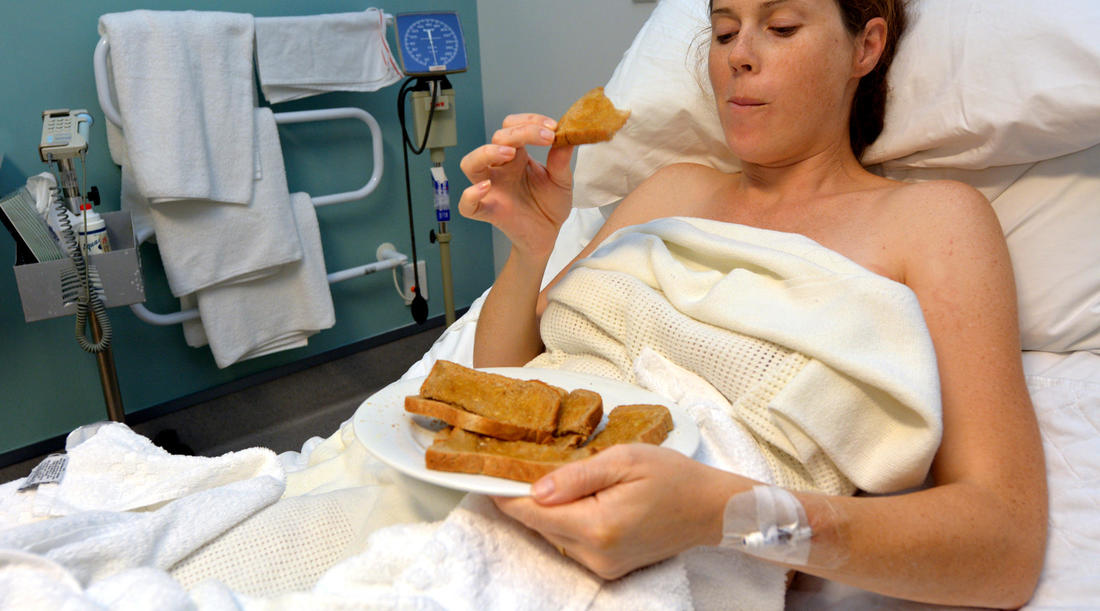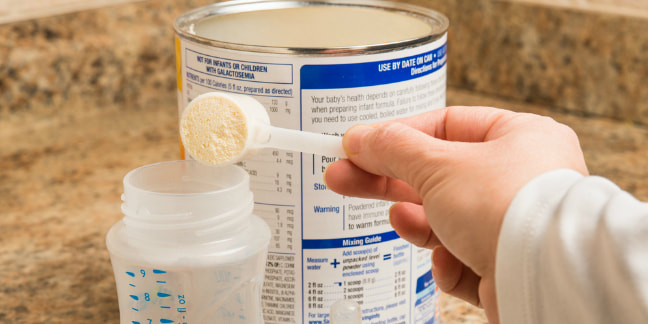|
I get asked this question all the time. Birth doulas are becoming more and more visible but there is still a lot of unknown when it comes to postpartum support. It’s hard to answer this question because I do whatever a family needs! So I thought I would take moment to share what I did at my most recent visit with a family.
I arrived in the morning and talked to dad for a bit about some big life decisions that the family is currently making (not exactly baby related but stuff like job offers, home improvements, and when to return to work from parental leave). While we talked I made breakfast for he and his wife. They were both up early to get their three older children off to school but didn’t take the time to eat anything yet. Their baby started to stir so dad woke up his wife (to breastfeed) who was conked out after a night of nearly no sleep. While she was getting herself together I changed their baby (who inevitable also peed all over herself mid diaper change). I helped mom with breastfeeding and took a few moments to check in with her and see how she was doing. After I made sure she had some water and a snack, I went to finish making breakfast. Mom put their baby back down to sleep after nursing and came to eat breakfast with her husband. It was a simple, balanced, colorful meal. I gave them some time to eat together in peace while I unloaded the dishwasher from the night before and then started reloading it again. After the kitchen was cleaned up, I sat down with the two of them and discussed what needed to be done and how I could help during my visit. We agreed that meal planning would be most helpful! The problem was that they were both so exhausted they didn’t even know what to make. I quickly suggested some dinner dishes and easy breakfast items for them and their children. I focused on meals that would utilize items I already saw in their cabinets and the refrigerator. We came up with a list of additional ingredients and I started making banana bread while mom went back to bed and dad went out to run some errands and pick up a few groceries. Banana bread was in the oven when dad returned with the grocieres . I unpacked the bags he bought and got to work making two quiches for breakfast and a lentil soup for dinner. As I was looking for an ingredient in the cabinet my desire to organize took over and I took their snacks out and organized it all so that it fit better. I wasn’t asked to do this but it was an item on the never-ending-list-of-things-to-do-when-you-have-four-children that I checked off for them. I was just cleaning up the kitchen when mom woke up from her nap and it was time to feed the baby again. I changed their baby while mom had some banana bread. While she nursed we talked about family, returning to work, what we wish for our children, and how to slowly create a stash of pumped milk so that she could get more sleep at night. We also watched Beachfront Bargain Hunt and commented on all the gorgeous homes and locations! So what did I do for this family? On the surface it looks like I cooked some food, which is very valuable, but that’s not all I did. I was attune to what everyone in the family needed and tried to meet those needs in a non-intrusive way. I talked through some issues that were weighing on each of their minds and supported them in creating nutritious meals for their family. It was bothering them that they hadn’t cooked in a while so this was bigger than just a dinner and some breakfast. And the most important part, they didn’t really have to ask for anything. I figured out what needed to be done and did it. Thats what makes me a doula and not a babysitter or a chef. I look forward to supporting you and being a part of your journey! Secondary Infertility: The inability to become pregnant or to carry a baby to term after previously giving birth to a baby. There are many causes, which can be diagnosed and discussed with your care provider. I would like to take a few moments to talk about the emotional and physical toll secondary infertility can take.
It is very easy for people (who I am sure have good intentions) to say, “At least you have your first child… what a blessing!” Yes, my son is a blessing but the bottom line is that my family is not complete yet. The stress is unbelievable. I never in my wildest dreams thought that I would be undergoing hormone treatments and egg retrievals. Our son was conceived on the second round of Intrauterine Insemination (IUI). This time around we found ourselves in the midst of egg retrievals and embryo transfers after unsuccessful IUI’s. My body felt depleted and we were emotionally spent. I was going to the doctor at 5 a.m. multiple times a week on and off for about a year. My son would kiss my “booboos” from my injections and it felt like we just keep waiting in anticipation. I started to have heart palpitations when I would see my nurse calling with updates. In an earlier post I wrote about my experience trying to conceive my son and how I learned way more about my fertility than I ever wanted to know. I felt defective. But that’s nothing compared to now. The good news is that for us all the hard work and stress paid off because we are pregnant again! I must add, though, that it’s not all amazing and blissful. My anxiety has continued into pregnancy as I sort of “wait for the ball to drop.” I am so incredibly happy to be pregnant again but I don’t think I will really feel at ease until our baby is safely in our arms. I feel that I have gained another level of sensitivity through this experience. I don’t ask families anymore if they “want more children,” which I frequently did before. I can also personally relate to expecting parents who are nervous throughout pregnancy that something may go wrong. Life is so fragile and bringing a life into this world is an amazing feat. My heart goes out to those of you that are struggling with fertility and my ears are open to hear your story. A close friend of mine was recently at a moms group with her second baby. Many of the moms were first time moms and she told me of one particular mom who was asking for advice on how to get her newborn baby to sleep a little bit longer. The mom seeking advice said that she and her husband were losing it because they weren’t getting any sleep with their baby waking up every two hours to eat. My friend thought to herself “welcome to motherhood.” This got me thinking of the many sleepless nights my wife and I spent with our son. He was on a strict schedule to eat every two hours. It would take us about an hour to finish getting enough food in him (he was very sleepy and underweight) and then I had to follow up with 20 more minutes of pumping. So by the time I got back into bed I would have about 40 minutes before having to start all over again. It was brutal. My thoughts around this are why don’t we tell expectant parents about this sleep deprivation? We all go through it but I very rarely meet a parent who fully understood what it would be like until they were smack in the middle of it. I know firsthand that a lack of sleep can really impact your life and I don’t think that we should just accept it as a new reality! So how much sleep do you really need? I don’t have an exact answer for you but what I can say is that a full sleep cycle takes about 90 minutes and not every sleep cycle is a full cycle. We generally complete numerous sleep cycles in a night. Of course newborns will disrupt the ideal sleep schedule but there are ways to make sure that everyone gets what they need. For example, there is evidence that a solid nap in the middle of the day can be extremely beneficial and is sometimes even better for a recharge than sleeping a full 8 or 9 hours at night. And what are the potential results of sleep deprivation? The following is a quote from SleepHealth.org outlining some of the issues that may arise from a lack of sleep, “Some sleep research suggests that inadequate healthy sleep can lead to weight gain and is a factor in the national obesity crisis. Lack of sleep muddies clarity of thought. The sleep stage known as REM (rapid eye movement) sleep is believed to play a role in the mental processing of the experiences of the day just past and the organization of memory. With too little REM sleep, memory may suffer. If prolonged, inadequate healthy sleep may be a precursor to cardiovascular disease. And even in the short term, the sleep deficit that results from too little sleep leads inexorably to daytime drowsiness, a potential killer to anyone operating heavy machinery or driving an automobile.” If the cute little babies can sleep peacefully like this and grow into amazing humans then their parents should sleep too! My hope is that we will have a shift where expectant parents will know how much attention their babies will need in a 24-hour period. Then parents will also know what they, as parents, will need, and perhaps they can then setup a support network. However, many families don’t live near their relatives and they feel like they lack the “village” that others have. This is where I come in! As your postpartum doula, I will provide time for you to get some quality rest and peace of mind. Contact me now to learn more about how I can help! Sources: https://www.psychologytoday.com/blog/between-you-and-me/201307/your-sleep-cycle-revealed http://healthysleep.med.harvard.edu/healthy/science/what/sleep-patterns-rem-nrem https://www.sleephealth.org/sleep-health/ https://www.sleepassociation.org/patients-general-public/what-is-sleep/ Adam Busby, the father of six girls, 5 of which are quintuplets, announced on the hit TV show “OutDaughtered” that he is suffering from postpartum depression. I heard the news first hand while I was working out on my elliptical and watching the show (one of few respites I seem to have now that I have a toddler of my own!). Adam Busby, in a phone interview with ABC News stated: "It totally got worse and worse, but it crept in," Busby said. "The babies, providing for my family and the kids and stuff, I felt like it was just constantly on my mind to where it's really hard to focus on anything else. I started withdrawing from friends that I've talked to on a daily basis. I didn't feel like engaging with people ... just because of the weight and constantly thinking about all this stuff that I have to prepare for.” Here is Adam with his six daughters: I’ve been thinking about Adam's announcement for a few weeks now and decided this would be the perfect topic to bring up in my next blog post… Many families in my geographical location are fortunate enough to have an abundance of support for birthing moms before, during and after birth. There are social groups, yoga classes, and walks in the park. But what support is out there for the partners? I remember my wife, Molly, who took only five days off from work, coming home nearly every day and expressing how difficult it was for her to leave our family and “miss everything.” She didn’t suffer from postpartum depression but looking back on it I realize now how little support she really had. She was expected to jump back into work and keep our family together so I could heal and take care of our son. Molly and I have already agreed that when we are finally blessed with another child we are hiring a postpartum doula. This is a big expense and something I have taken into consideration as I try to make a living as a doula myself. Most families I have worked with didn’t originally plan on hiring a postpartum doula. So why will we hire a doula and why do my clients end up hiring me? Because your sanity is worth it! There is nothing quite like waking up in the morning after a restful sleep to clean dishes, laundry, a happy baby, and maybe even some breakfast waiting for you. Or even just a four-hour break in the middle of the day where you don’t have to be the one in charge. You can take a shower in peace, nap, go for a walk, and maybe learn how to use your new newborn carrier. So now you might be wondering how this extends to the non-birthing partner… As a doula I feel that there is way to much pressure put on partners. Many are lucky if they get five days off from work. So I asked my wife, why would you want to hire a postpartum doula? Her response: “If you are less stressed then it makes for a better relationship… and sleep would be amazing!” Raising our son has, for both of us, been the most rewarding part of our lives but also the most challenging. Let’s remember that both parents face challenges; so do what you can to relieve some pressure and make sure that everyone is getting the support they need! And here is a picture of Molly and I with Finn when he was only five days old. I love this picture because it shows our joy but also total exhaustion! Eat lactation cookies, drink a special tea, eat steel cut oatmeal around the clock, drink beer, take herbs, drink extra water, sleep… the list just keeps going! The truth is that there is no magic solution to making more milk. And after you have tried the list above you will likely feel exhausted, frustrated and perhaps defeated. I’m also concerned about the number of herbal supplements that are recommended to nursing moms without a thorough look into that mom’s medical history. I believe there are herbs that can be highly effective BUT depending on your medical history you can have adverse effects such as making even less milk! The only thoroughly researched and backed up SAFE method is to pump and/or breastfeed frequently and effectively. Newborns eat often and they don’t like schedules. They nurse when they are hungry, thirsty and when they just want a little snack! I often here “but he just ate, he can’t be hungry again” 15 minutes after a baby supposedly finished eating. Yes – he may want to eat a little more – maybe he wants desert with that meal! This doesn’t mean you aren’t making enough milk and that he didn’t get enough milk in his last nursing session. And if all really doesn’t seem ok then meet with a lactation counselor (ME!) to asses how your baby is nursing. If I can’t help you, you can rest assured that I have a team of professionals in my network that can help guide you even more. In the meantime, practice some self-care. Try to take a few minutes for yourself every day, make a cup of tea that you like, and if you are looking for a yummy fall treat I’ve got a great recipe I found. **I made a few adjustments to the recipe – the original can be found here: https://www.browneyedbaker.com/apple-cupcakes-cinnamon-cream-cheese-frosting/ APPLE CUPCAKES WITH CINNAMON-CREAM CHEESE FROSTING YIELD: 10 cupcakes Spiced apple cupcakes topped with a cinnamon-cream cheese frosting… A perfect fall dessert! INGREDIENTS: For the Cupcakes: 1¼ cups all-purpose flour 1 teaspoon baking powder ½ teaspoon salt ¼ teaspoon ground cinnamon ¼ teaspoon ground ginger ¼ cup unsalted butter, at room temperature 1 cup granulated sugar 1 egg, at room temperature ½ teaspoon vanilla extract ¼ cup + 2 tablespoons buttermilk, at room temperature 2 cups shredded Gala apples (about 2 medium apples, peeled) For the Cinnamon-Cream Cheese Frosting: ½ cup salted butter, at room temperature 4 ounces cream cheese, at room temperature 1½ teaspoons vanilla extract 1 cup powdered sugar 1 teaspoon ground cinnamon DIRECTIONS:
My little guy just can't get enough of these cupcakes!
One question I always ask "moms to be" is whether or not they would like to eat and drink during labor. There is a huge divide in care providers on this topic and so some families don't even know it is an option. I found a great article that outlines the research explaining why we have a culture of no eating and drinking during labor... the practice originated in the 1940s when labor and birth looked a lot different than they do today. The article also reveals recent research and outcomes on eating and drinking during labor today. The following is a quote from the article - please feel free to click on it and read it in its entirety! "Everyone going into labor is assumed to be at risk of aspiration because it is not possible to predict who will end up needing a Cesarean surgery under general anesthesia. However, the studies above show that aspiration death is extremely rare in the overall birthing population. This is because so few Cesareans require general anesthesia, and when they do, failed airway management deaths are rare." Happy informed decision making and happy birthing! My last post was about safe formula prep so it's fitting that we now talk about breast milk storage! No need to reinvent the wheel here - this is right from the Center for Disease Control (CDC) website! Countertop, table
Room temperature (up to 77°F or 25°C) 6–8 hours Containers should be covered and kept as cool as possible; covering the container with a cool towel may keep milk cooler. Insulated cooler bag 5-39°F or -15-4°C 24 hours Keep ice packs in contact with milk containers at all times, limit opening cooler bag. Refrigerator 39°F or 4°C 5 days Store milk in the back of the main body of the refrigerator. Freezers Store milk toward the back of the freezer, where temperature is most constant. Milk stored for longer durations in the ranges listed is safe, but some of the lipids in the milk undergo degradation resulting in lower quality. Freezer compartment of a refrigerator 5°F or -15°C 2 weeks Freezer compartment of refrigerator with separate doors 0°F or -18°C 3–6 months Chest or upright deep freezer -4°F or -20°C 6–12 months Reference: Academy of Breastfeeding Medicine. (2004) Clinical Protocol Number #8: Human Milk Storage Information for Home Use for Healthy Full Term Infants [PDF-125k]. Princeton Junction, New Jersey: Academy of Breastfeeding Medicine. Some additional notes:
I spent last week at a training in Washington D.C. to become a Certified Lactation Counselor (CLC). Lactation and infant feeding is a field I am truly passionate about and I received so much information at this training that I want to share with others!
Just some background information on my personal lactation journey first… I always thought that I would breastfeed my son. In fact, I didn’t even realize that there could be obstacles in my way until I was sitting there postpartum with a lethargic baby who wouldn’t gain weight. I saw numerous lactation counselors, consultants and even a breast doctor! My son had a tongue and lip tie revision, was closely monitored for weight gain, and had formula supplementation. The World Health Organization (WHO) recommends that, “infants are exclusively breastfed for the first six months of life. Babies who are exclusively breastfed will get the best start for growth, development and health. Infants who are not breast fed need a suitable breast-milk substitute, for example, infant formula.” So I would like to talk about formula and safe formula preparation because many babies do receive formula and unfortunately many parents do not know how to safely prepare it. I have same personal favorites when it comes to formula. If you would like to look more into it there is some great information on the formulas Holle and Hipp on the Little Moo Organics website (which I have personally ordered from). I do not have any affiliation with this website/company but from personal experience I found them to be reliable and informative. You cannot go to the food store in the United States and purchase these formulas. I am also happy to discuss with you why I like these formulas! Once you choose your formula it is important to prepare it correctly and safely because powdered formula IS NOT sterile and may cause serious illness in infants. So regardless of which formula you use, Holle, Hipp or a name brand sold in the U.S., i.e. Similac or Enfamil, you have the same procedures to follow. Please note that this is for POWDERED FORMULA. Premixed liquid formula does not need any preparation. Safe Powdered Formula Preparation:
**Throw away any feed that has not been consumed within two hours. WHO also states, “It is safest to prepare a fresh feed each time one is needed, and to consume immediately. This is because prepared feeds provide ideal conditions for bacteria to grow - especially when kept at room temperature. If you need to prepare feeds in advance for use later, they should be prepared in individual bottles, cooled quickly and placed in the refrigerator (no higher than 5 oC). Throw away any refrigerated feed that has not been used within 24 hours.” I have prepared up to 12 hours worth of formula before (follow all cleaning, sanitizing and measuring guidelines as stated before). This helps cut down on the amount of preparation needed for each individual feed. You can see the full WHO article here. If you are looking for a doula, you have likely already started thinking about your “birth plan.” I would like to encourage expectant moms, dads and partners to think more along the lines of “birth preferences.” Birth is really hard to “plan” for. You don’t know exactly how you will feel in the moment and what your baby may feel like doing! It is incredibly beneficial to know your options ahead of time, think about how you would like things to go, maybe even have a “Plan B,” and then just roll with it.
In our prenatal visits leading up to the birth of your little one, we will go over an array of preferences and create your birth preferences worksheet together. Some things to consider:
As your doula I will provide evidence-based research to help you create your preferences worksheet in our prenatal visits. These preferences will be shared with your care provider and changed if necessary. Then during your labor and delivery I will help you achieve your preferences and be a sounding board if things need to change. I am so excited to meet you and am honored to be a part of this process! Click here to get more information on my birth doula services. If you Google this question you will come across a number of articles… I’m going to break it down into four major differences to give you a better understanding of what I do as a postpartum doula!
Role: Bringing a new baby home can be overwhelming! As your postpartum doula, I will support your entire family in your home in whatever capacity is most needed. I can answer questions on newborn care, help with the first bath, answer questions on feeding your baby, assist you in wearing your infant in a newborn carrier, take care of your infant while you nap or shower, prepare meals, run errands for you or with you, and perform some light housekeeping such as laundry and cleaning baby bottles.... plus so much more! Even if you have TONS of family support, doula support is incredibly valuable. Both you and your partner will receive evidence based education (if you want it) and non-judgmental support, which will allow you to gain confidence in your new roles! I’d like to take a minute to point out that I do a lot of listening. I recently worked with a family facing some pretty intense breast-feeding struggles… there were nights of crying, phone calls of desperation, and also moments of shear joy. Sometimes all you need is someone to listen. As this family’s postpartum doula I also scheduled a late night visit with an International Board Certified Lactation Consultant (IBCLC). I spoke with the family about options, relayed that info to the consultant, and ultimately scheduled this visit, which proved to be a total game changer for the family. As for overnight support, I can be the sole caretaker of your baby overnight, or, if the birth mother is breastfeeding, I can stay in a separate room with your baby and bring your baby to you when he/she needs to nurse. Then I will burp, diaper, soothe, etc. your baby so that you can get right back to sleep! Now what is the role of a baby nurse? A baby nurse’s focus is on your newborn, not on you, your partner, or other siblings. She may be a wonderful individual and have the best of intentions – fabulous with your baby – but she will not personally call up an IBCLC and get you a last minute appointment, nor will she be available by phone for your questions. Who actually comes to your house?: If you hire me, then you will see me at your doorstep. Most baby nurses are a part of large agencies and you often will not know ahead of time who your baby nurse will be. Schedule: I have worked with families for as little as two weeks and as long as four months. For some families I have only provided support during the day, others only nights, and others a combo of the two! My number of contracted hours has varied a great deal as well. Some families need support every day and some only one day a week. The bottom line is that I offer extreme flexibility as a postpartum doula! A baby nurse requires a set schedule. Furthermore, if you are hiring a baby nurse for overnight support, she will require a set schedule that doesn’t change from week to week. I, on the other hand, may be there the night before a busy day and then return later in the week to accompany you during your little angel’s pediatrician appointment. Cost: My services cost more than that of a baby nurse. Why? By offering you such a flexible schedule I am limited in the number of families I can work with. Furthermore, I am available by phone and email throughout the day and even night for last minute questions and those moments where you just need reassurance that you are an amazing parent! So what’s the take home? Well of course I want you to hire me as your postpartum doula. I am flexible, compassionate, a good listener, and resourceful. I have also recently added a package to my services that includes just overnight support at a slightly reduced rate. Hopefully I’ve given you enough information to make the best choice for you, your baby, and your family. All the best with your new little one! Click here to get more information on the postpartum support services I offer! |
Astrid Hufnagel is a Birth and Postpartum Doula living in Montclair, NJ and serving the following counties in Northern NJ: Essex, Union, Morris, Passaic, Bergen, Hudson, Somerset and Middlesex











 RSS Feed
RSS Feed